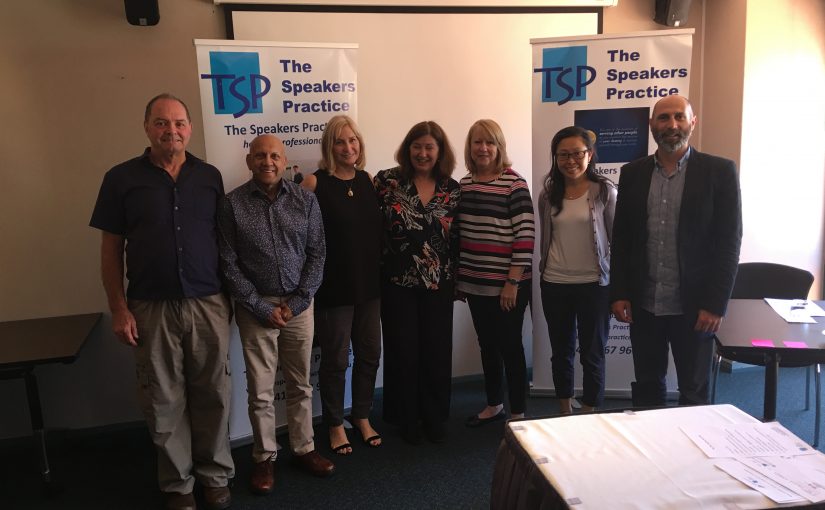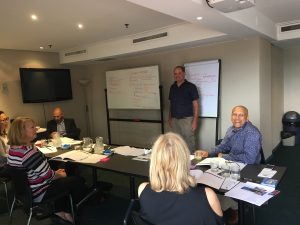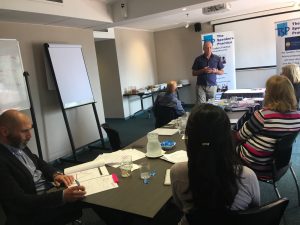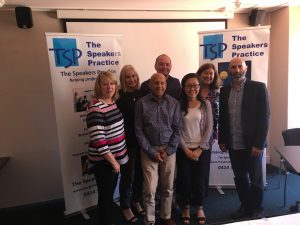It’s through Practice, that people who give presentations can work on their presentation to give maximum impact to their audience. It’s one thing to talk about what you want to speak about, its another thing completely, whether your audience understands the points you are delivering.
Even the most experienced presenters practice their speeches, fine tune their messages, understand the timings of their presentations so their audience really gets the most out of attending and ultimately wants to hear more and wants to do business with the presenter.
So , what is the Process of Practicing a Presentation?
PREPARE – this is where you gather your information, write your presentation, look at your objectives for giving the speech and what your message is. Use stories that are yours , this will help you to remember what goes next. This is where most of your time is spent. The SpeakersTrainingCamp® has a wonderful structure that can really help you to look at every aspect of a presentation.
REHEARSE – you have your presentation ready, now to get your delivery smooth and confident, you need to rehearse a number of times so that you really feel that you know it inside out. Then you can present your speech not relying on notes, you can have them there ,however, it really helps your presentation if you are not glued to your notes and you are looking at your audience.
AUDIENCE – you are delivering your presentation to inform, inspire and guide your audience. You can make a difference with your presentation – whether it’s an important presentation to an executive committee , a work group or its a social presentation. Your presentation is for your audience.
CONNECTION – Practicing your presentation will give you the opportunity to maximise your connection with your audience. The more confident your presentation, the more you know your message, the more authentic you are, the more eye contact you have with your audience, the more you know about your audience – the better your connection with your audience and the more you will be successfully able to get your message across.
TIMING – Always ,and I mean , Always respect the timing of your presentation. Know your presentation, and by going through this process you do now, Know how long it takes and suite the timing to what is expected. You may be given 20mins, then , have your presentation going for 20minutes. This point is really important. Speakers that think they can go on for hours instead of minutes loose their audience’s respect as well as credibility. By practicing, you can fine tune the timing and increase your confidence.
IMPROVE – Professional speakers practice and improve their presentations so that they can confidently present their speech and achieve maximum impact. Don’t wing it, practice and Improve then you will get maximum impact from your presentation.
CONSOLIDATE – Now you have Prepared, REhearsed , thought about your Audience, built a Connection wtih your audience, worked at the Timing, Improved – all these tasks have Consolidated your presentation so that you can really achieve what you would like from your presentation – and that is Impress them!
EXCEL – when you follow this process , you will Excel and do your best. Ok, there’s always areas to work on ,however, by continuing along this path of Continuous Improvement and Practice of your Presentations , you will Excel! this is the Power of Practice.
Consider joining The Speakers Practice – Speakers Forum. Attendees are like-minded Business People who are wanting to promote their businesses by speaking to networking groups, associations ,etc. We discuss presentation skills , present current speeches and get audience feedback on delivery, objectives , on how we understood the message, and so on.
Enjoy your Presentations, Practice your Presentations and appreciate the Power of Practice!!














